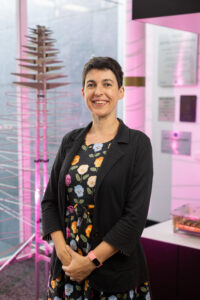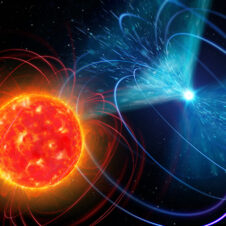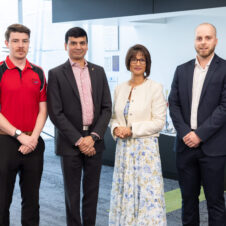Associate Professor Natasha Hurley-Walker, a leading radio astronomer the Curtin University node of the International Centre for Radio Astronomy Research (ICRAR), has been awarded the 2024 David Syme Research Prize for her work titled Radio Astronomy.

A/Prof Natasha Hurley-Walker. Credit: ICRAR.
The University of Melbourne’s David Syme Research Prize is one of Australia’s oldest science awards, established in 1906 to recognise the best original research in biology, physics, chemistry or geology conducted in Australia in the previous two years.
Using supercomputers to analyse vast datasets from Western Australian telescopes, Associate Professor Hurley-Walker has transformed our understanding of the radio sky. She has led major radio sky surveys that uncovered rare and unusual signals, including the discovery of a new class of mysterious repeating radio sources that opened a new field of astrophysics.
Her research will support Australian astronomers in detecting unexpected phenomena with the SKAO – soon to be the world’s largest radio telescope.
Beyond scientific breakthroughs, Associate Professor Hurley-Walker’s work is advancing data analysis techniques and demonstrating how astronomers can extract new insights from massive datasets, with applications in other data-intensive fields.
Associate Professor Hurley-Walker said it was an honour to have the impact of her research recognised.
“It’s exciting to contribute to new discoveries that are challenging our understanding of physics and changing the way astronomers make sense of large data sets. It’s especially meaningful to have inspired millions around the world to look to the sky with wonder,” Associate Professor Hurley-Walker said.
“The prize will not only raise the profile of our research but will support student-led projects that continue to push the boundaries of what we know about the universe.”
A committee from the University of Melbourne’s Faculty of Science selects the David Syme Prize winner each year. See previous prize winners.

